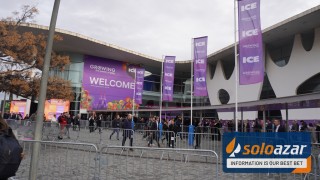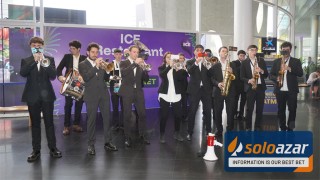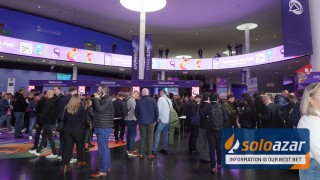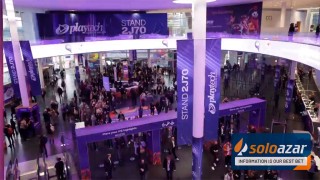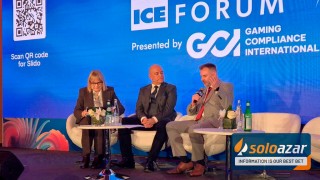Boston: Sports betting industry buzzing over marketing rules
Friday 24 de March 2023 / 12:00
2 minutos de lectura
(Boston).- The sports betting industry is on one side, the attorney general’s office is on the other, and in the middle is the Mass. Gaming Commission regulators who will soon have to decide whether to allow certain marketing arrangements in Massachusetts.
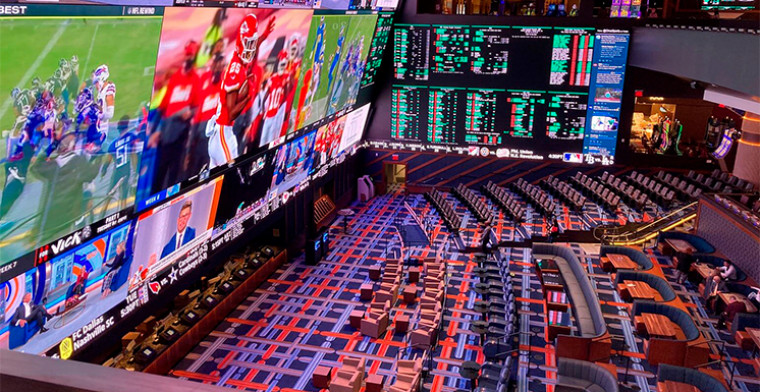
At issue is third-party affiliate marketing, in which a company pays content websites and publishers to drive customers to its product. In the sports betting world, that often takes the form of sports betting-related websites that get paid to promote the legal sportsbooks they partner with.
Advertising regulations that the Gaming Commission promulgated on an emergency basis in January do not allow sports betting companies to enter into revenue-sharing or cost-per-acquisition agreements with third-party marketing affiliates if the compensation is based on the number of people who sign up for an account or based on the number or amount of wagers placed because of those advertisements.
But the commission approved a waiver that keeps that specific part of the regulation from taking effect until mid-April, and regulators on Thursday mulled over the deluge of comments they got from betting companies, marketing affiliates, Attorney General Andrea Campbell’s office, broadcasters, and others with an eye towards making a final decision about the fate of the limitation on cost-per-acquisition agreements on Monday.
“The operators, the broadcasters, entities like [iDevelopment and Economic Association], the teams, the sports teams who also commented on this like the Red Sox — basically everybody in the regulated industry side has advocated for removing this section either in its entirety or limiting it in different ways,” Mina Makarious, an attorney at Anderson & Kreiger who has been working with the commission to write sports betting regulations, said Thursday. He added, “The attorney general’s office has asked, in their comment letter initially and in the comments they provided yesterday, that this section be retained.”
Makarious said the 49-word subsection that deals with third-party marketing was “probably the most commented on” part of the commission’s advertising regulations. Comments came in from DraftKings, FanDuel, Penn Entertainment (which owns Plainridge Park Casino and Barstool Sportsbook), a coalition of affiliate marketing media companies, Boston Red Sox Senior Vice President David Friedman (on behalf of a coalition of broadcasters), WynnBet, First Assistant Attorney General Patrick Moore, and others.
“PENN recommends this regulation be removed as it is unprecedented in the sports wagering industry and prohibits standard marketing practices and agreements currently in place across multiple jurisdictions. PENN operates online sports wagering in 15 jurisdictions and retail sports wagering in 12 jurisdictions (excluding Plainridge Park Casino in MA), none of which impose a ban on establishing agreements with third-party marketing entities based on the volume of patrons or wagers placed, or the outcome of wagers,” Penn wrote.
Friedman, who worked as counsel and chief policy advisor to former Senate President Robert Travaglini and as first assistant attorney general under Attorney General Martha Coakley before joining the Red Sox, said that “these affiliate models are commonplace in the industry, and work to funnel individuals with sports wagering intent to legally licensed regulated sportsbooks.”
But Moore said that the issues Campbell’s office raised earlier this month with the practice of sports betting companies paying “experts” to encourage certain bets “would become even more problematic should the Commission back away from its current (and very sound) prohibition on commission-based payments to third-party marketing vendors.”
“The fact is that certain third-party marketing vendors present themselves to the public as tip sheets, providing advice on prospective wagers. Where a vendor expressly or impliedly advises a particular wager, that vendor must not be compensated based on whether its audience then uses or accesses a sports wagering operator’s site or app to make the bet it has advised,” Moore wrote.
An updated version of the advertising regulations that the Gaming Commission reviewed Thursday appeared to incorporate some of the suggestions that Moore and Campbell’s office made earlier this month when he and other attorneys briefed the commission on the concerns that the state’s top law enforcement officer has that young person in Massachusetts could be “unduly exposed to potentially addicting products” through ubiquitous marketing and promotion efforts and the design of mobile betting apps.
For instance, the latest draft of the regulations would ban sports betting ads from social media platforms unless “adequate controls are in place” to prevent those ads from being shown to people younger than 21 “including by use of age category exclusions and similar mechanisms.”
Moore had specifically flagged social media and connected TV platforms like Hulu or YouTube TV for their potential to expose younger people to betting ads and said many of those platforms allow people under a certain age to be excluded from an advertiser’s audience. “Where that capability exists, the operators should be required to use it,” he said on March 9.
Sports betting ads have come to quickly dominate TV and radio programming viewed by people of all ages in recent weeks.
Commissioners said Thursday that they needed time to digest the bevy of comments (it was 62 pages of comments on the advertising regulations in the commission’s meeting materials) and wanted to get clarity on how other states treat third-party marketing. Makarious said Connecticut and Illinois “ban this all together,” but Commissioner Jordan Maynard said there is “scuttlebutt that Connecticut may be going the other way.”
The Gaming Commission also put another pressing matter off until a later date during its meeting Thursday.
The commission has for months been weighing how it should handle promo play credits — the “free” bets that operators offer to lure in bettors — for tax purposes.
The question has significant tax revenue implications for the state and profit implications for operators, but lawmakers did not make a clear statement about promotional play in the compromise betting bill passed last summer. Now, at least one — Sen. Will Brownsberger — has asked the Gaming Commission for more information on how promo play is being treated.
Commissioners voted 3-2 on Jan. 12 to agree that they have the authority to interpret the matter, but the issue has not since returned before the commission. Since sports betting launched Jan. 31, operators have not been deducting promo play from their taxable revenue.
Commissioners said Thursday they wanted to dive more deeply into the matter and discussed putting the topic out for public comment and arranging a roundtable with operators, responsible gaming advocates, the attorney general’s office, the state Treasury, and the governor’s office.
Chairwoman Cathy Judd-Stein specifically mentioned having the Executive Office of Administration and Finance involved since allowing operators to deduct promo play credits from their taxable revenue could reduce the amount of tax revenue the state takes in from sports betting.
Campbell’s office has already told the Gaming Commission that it thinks regulators should ban referral promotions and vet other specific promotions before they are allowed to be deployed here.
“If and to the extent that the Commission determines certain promotional incentives are consistent with safe and responsible gaming, the cost of those promotions should not be used by the operators to offset their gaming revenues,” the office wrote in a letter earlier this month. “The people of the Commonwealth certainly did not intend to provide a tax subsidy for gambling giveaways.”
Categoría:Sportsbook
Tags: Sports Betting, Sportsbook ,
País: United States
Región: North America
Event
ICE Barcelona 2026
19 de January 2026
Daniel De Los Ríos on Amusnet’s ICE Barcelona 2026 Experience and LATAM Growth Plans
(Barcelona, SoloAzar Exclusive).- The Head of Commercial and Marketing in LATAM at Amusnet shares insights on the company’s latest innovations, industry trends, and strategic goals for 2026.
Thursday 05 Feb 2026 / 12:00
Tomás Galarza: "This edition of ICE was especially relevant for ASAP"
(Barcelona, SoloAzar Exclusive). Following his participation in ICE Barcelona 2026, Tomás Galarza, a Political Science graduate and foreign trade expert at ASAP, shares his insights on global trends, international business opportunities, and the company's strategic priorities for this year.
Wednesday 04 Feb 2026 / 12:00
Win Systems Expands Presence in Spain and Highlights Route Operations at ICE 2026
(Barcelona).- At ICE 2026 in Barcelona, Win Systems showcased its innovative gaming solutions for the Spanish market, emphasizing Player Tracking, Win Pay, and route operations to enhance operator performance and player engagement.
Wednesday 04 Feb 2026 / 12:00
SUSCRIBIRSE
Para suscribirse a nuestro newsletter, complete sus datos
Reciba todo el contenido más reciente en su correo electrónico varias veces al mes.











